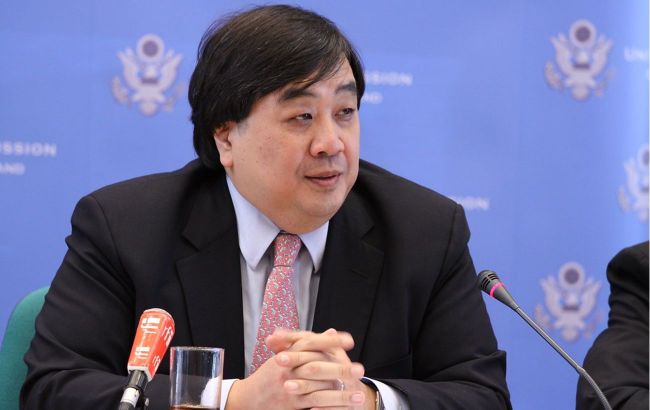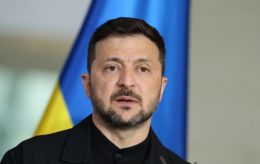Experts deem confiscation of Russia's frozen assets legal - Bloomberg
 Photo: Yale Law School Professor Harold Hongju Koh (flickr.com)
Photo: Yale Law School Professor Harold Hongju Koh (flickr.com)
A group of legal experts considers the confiscation of frozen Russian assets to be lawful, informs Bloomberg.
The European Union, G7 countries, and Australia have frozen approximately 260 billion euros (280 billion dollars) in the form of securities and cash, with over two-thirds of them blocked within the EU.
Ten international law experts from seven countries (Belgium, France, Germany, Japan, the Netherlands, the United Kingdom, and the United States) have signed a letter addressed to G7 countries. They seek to take the matter to court for the seizure of relevant assets.
"We have concluded that it would be lawful, under international law, for States which have frozen Russian State assets to take additional countermeasures against Russia, given its ongoing breach of the most fundamental rules of international law, in the form of transfers of Russian State assets as compensation for the damage that has resulted directly from Russia’s unlawful conduct," wrote the experts.
Among those who signed the letter:
- Harold Hongju Koh, a professor at Yale Law School and former dean, who also served as Legal Adviser to the US Department of State during the Obama administration.
- Philip Zelikow from the Hoover Institution, a lawyer and former career diplomat who worked in the government under presidents, including as a strategic consultant to the Biden administration.
Seven of the remaining signatories are scholars and practitioners in the field of international law from Europe, and one is from Japan.
The letter comes at a time when G7 countries are discussing what to do with these assets, as Ukraine's financing needs remain consistently high, and the war shows no signs of weakening.
In their letter, the legal experts recommend that the states that have frozen these assets transfer them to an international mechanism. Subsequently, the deposited assets could be allocated to support programs aiding Ukraine in its recovery.
Possible issues
The United Kingdom and the United States are pushing G7 allies towards the direct seizure of assets from the central bank. Canada is reportedly open to this idea, according to officials familiar with the discussions.
European members of the group, particularly France and Germany, are currently opposing this move due to legal difficulties and concerns that it could harm the stability of the euro and set a dangerous precedent, say official sources.
The majority of the frozen funds are located in Europe, predominantly in Belgium. The Audit Court and the European Central Bank are skeptical about the right to seize these assets.
G7 countries are discussing various options. Among the ideas under consideration is using the funds as collateral for borrowing or as guarantees for loans.
If a solution can be found that overcomes current concerns, the plan is to announce it at the G7 leaders' meeting in Italy in June.
Earlier, we reported that Estonian Prime Minister Kaja Kallas urged transferring frozen Russian assets to Ukraine.
What is hindering reparations payments to Ukraine – read in the material by RBC-Ukraine.

